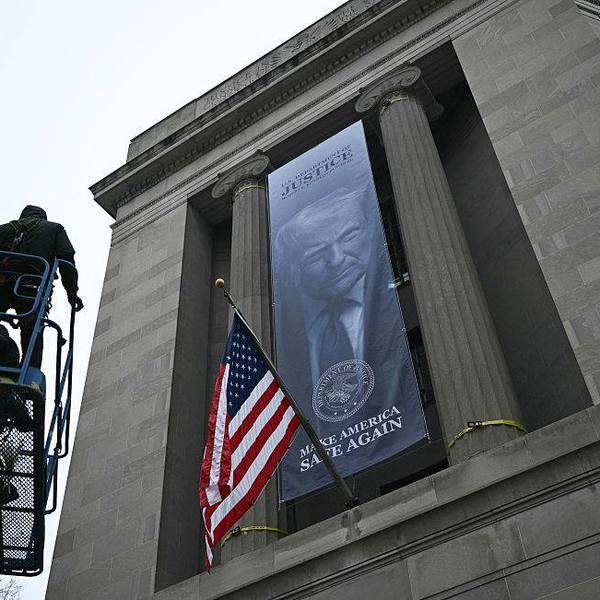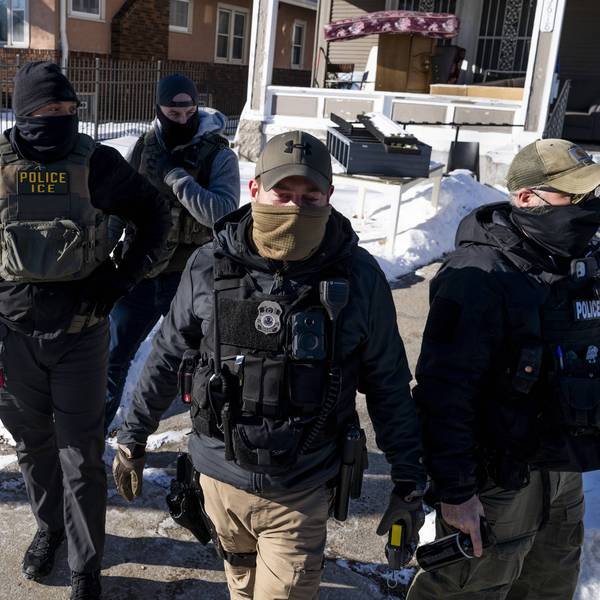He repeatedly mangles facts and butchers the truth -- and almost never apologizes for it. He managed to rise to the top in Washington when many thought that the issue of racism would kill his career. He's a zealot on immigration who consistently portrays America's cities as urban hellholes, where residents should thank God every day that they're not shot.
And on his worst days -- which is almost every day, to be honest -- he can almost make President Trump look like a sane centrist. OK, I said "almost."
I am writing, of course, of Jefferson Beauregard Sessions, the 84th attorney general of the United States and arguably the worst, which is quite a feat since that list includes a convicted felon -- Richard Nixon's AG John Mitchell, caught up in Watergate -- and Ronald Reagan's Ed Meese, who didn't believe that hunger existed in America.
But Jeff Sessions is in a league of his own, because he is developing brutal policies for an America that doesn't exist -- where crime in big cities, or committed by undocumented immigrants is skyrocketing, to out-of-control levels and where the "Reefer Madness" of marijuana is a crisis that's destroying the nation from within. He bases these "law-and-order" jihads largely on what we now call "alternative facts." But if Sessions isn't stopped, he may actually succeed in making the country less safe -- a situation that he would certainly exploit to plunge America into the kind of authoritarianism that both he and Trump would applaud.
The latest Sessions flap is also Exhibit A in the case that letting the top officials of the U.S. government get away with outrageous lies is eating at the moral fabric of this country. In a written statement accompanying the latest threat to strip federal dollars from so-called "sanctuary cities" that don't go after the immigration status of arrestees, the nation's top law-enforcement officer wrote: "New York City continues to see gang murder after gang murder, the predictable consequence of the city's 'soft on crime' stance.'"
Another consequence of that so-called "soft-on-crime" stance in New York City has been watching its murder rate plummet from a peak of 2,245 murders in 1990 (when a Utah tourist was stabbed to death in a crowded subway station and the New York Post screamed, "Dave, Do Something!" at then-Mayor David Dinkins) to 355 last year -- an 85 percent decrease -- with homicides falling even further so far in 2017. And the Big Apple -- with its militarized police force, many accusations of brutality over those 27 years, and a stop-and-frisk policy that was found unconstitutional by a judge -- didn't get there by being "soft." Believe me.
Indeed, Sessions' characterization of policing in New York was so absurd that even he backed away from it, somewhat. But the senator-turned-lawman's strategy has been consistent. His goals are a mass-deportation force, to take the "gloves off" the beat cop and the immigration agent when it comes to civil liberties, and to fill for-profit prisons to the brim -- and he'll say anything, no matter how outrageous, to justify that.
Where did this guy come from? If you must know, Sessions grew up outside a smallish town called Camden, Alabama -- a place that, in the deeply segregated early 1960s, he recalls as "idyllic." The spring that Sessions graduated from Wilcox County High School -- 1965 -- Martin Luther King came to speak twice and a protest march devolved into beating and tear gas. Sessions doesn't remember any of this. "I was a teenager then and I didn't know anything about it," he told a participant in the Camden, Ala., march 50 years later.
That foggy notion -- that things were better in that simpler, and whiter, America that he clings to in his imagination-- has animated the political career of Jeff Sessions ever since his youth. And it still pokes through a half-century later. Also last week, Sessions caused a stir when he asked how "a judge on an island in the Pacific" -- also known as Hawaii, one of the 50 U.S. states -- could block Trump's travel ban on mostly-Muslim nations. That's because Sessions can't comprehend how Hawaii -- which is majority non-white (mostly Asian) and also the producer of one Barack Obama -- can be part of his United States.
There was a time when Sessions' regressive views held him back; in 1986, he was famously nixed by a U.S. Senate committee for a federal judgeship both because of some offensive remarks with racial overtones and because of his actions as a U.S. attorney, with beyond-dubious prosecutions of black voting-rights advocates in some of the same Alabama towns that had erupted during his "idyllic" youth.
But times changed. Morals standards declined. And Sessions adapted. Alabama voters, who somehow didn't share the kind of reservations about Sessions' views on race held by U.S. senators in the 1980s, made him their senator, and he learned it was more politically palatable to target immigrants than African-Americans. In the mid-2010s, Sessions and his diabolical aide named Stephen Miller had dangerous ideas that needed a charismatic spokesman, and Donald Trump was a egomaniacal presidential candidate desperately in need of ideas. It was a marriage made in hell.
The damage that Sessions is capable of causing as Trump's attorney general should put the lie to any notions that incompetency -- which exists in the current White House, bigly -- will thwart the administration from doing really bad things. Three huge examples:
-- Amping up the war on drugs, and escalating it to go after marijuana. The Washington Post reported earlier this month that Sessions and a top aide named Steven Cook -- a former Tennessee prosecutor who made a name for himself arguing that the U.S. having the world's highest incarceration rate means the system is working -- are scheming to bring back an '80s-and'90s style assault on drugs that would lock up more drug users and amp up mandatory minimum sentences. This after a generation in which mass incarceration -- often for non-violent drug offenses -- has ripped apart the social fabric of urban neighborhoods in Philadelphia and elsewhere.
He's also hinted strongly at a legal crackdown on weed -- bucking what had briefly been a national trend aimed at ending a mindless prohibition in which millions of decent folks are branded lawbreakers (and some are actually arrested, even here) for a recreational activity that could instead be regulated and taxed.
-- Sessions' inane New York City crime comments came attached to his "sanctuary cities" threat that is a double-whammy of bad ideas: Seeking to create a climate of fear in immigrant communities where members won't come forward to report actual crimes, while using the controversy to possibly yank millions of dollars in worthwhile federal law-enforcement grants that fund equipment that keeps cop safe, or anti-gun violence programs. A couple of weeks ago, Sessions also ordered his prosecutors to more aggressively charge the undocumented with crimes, a lynch-pin of the Trump administration's plan to fill up deportation holding cells and send ultimately send countless thousands back over the border.
-- Sessions had made it completely clear that he will roll back any efforts undertaken during the Obama era to rein in brutality and other forms of overly aggressive policing. The attorney general thinks it's counterproductive for the federal government to look at broad patterns of cop misconduct that have been uncovered in places like Ferguson or Baltimore. That pullback will warm the hearts of the Fraternal Order of Police, which endorsed Trump, but only increase mistrust in communities where police are viewed, with justification, as an occupying force.
Of course, the idea that building respect between police and the citizens that they serve will reduce crime rates and make life safer for law-abiding folks is completely alien to the worldview of Jeff Sessions. That vision was best expressed by his close ally Miller who drafted Trump's dark inaugural address, which spoke of "the crime and gangs and drugs that have stolen too many lives and robbed our country of so much unrealized potential, adding: "This American carnage stops right here and stops right now."
To be clear, violent crime is a scourge, and levels here in Philadelphia and elsewhere are still higher than any of us wants to see. But the delusions of Jeff Sessions -- that crime is rising when it's actually near historic lows -- and the deeply misguided policies that stem from his delusions are beyond dangerous. It's not hard to imagine an American society in which mistrust between police and immigrant and poor, non-white communities, and a jacked-up drug war, create a situation where violence actually does increase, which would inspire harsher measures -- and a civic death spiral where our "unshackled" officers install a police state.
And it all starts with letting our top officials lie. We should never forget that Sessions' time as America's top law-enforcement official began with a blatant falsehood under oath -- about his campaign contacts with Russian officials. And now we are seeing the consequences of not holding officials accountable. The real-world fallout from Jeff Sessions' fictional fantasies about crime and immigration will be an actual case of American carnage.



